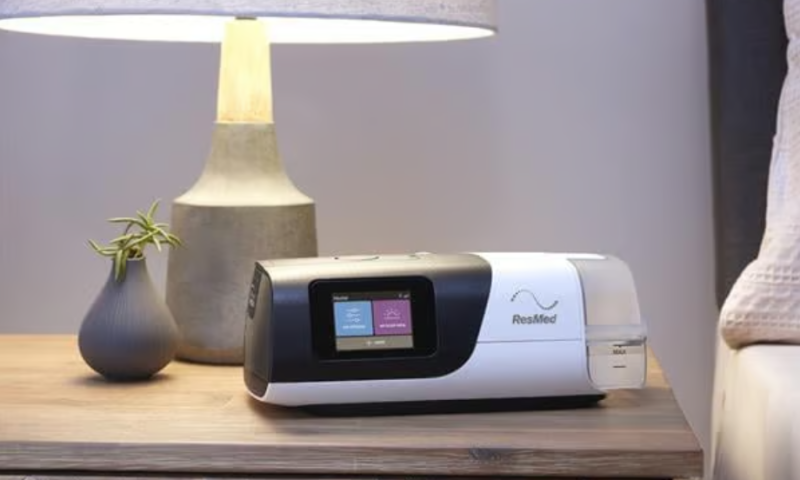As the global supply chain has begun to slowly untangle itself over the past few months, ResMed has finally been able to scale up production of its sleep apnea hardware and start to fill the massive gaps left by Philips and its respirator recalls. But now that Philips is looking to make its return to the market, ResMed says it’s off to the races.
“We now have full global availability of our connected AirSense 10 platform, while we continue to ramp production and availability across more geographies of our AirSense 11 platform,” ResMed CEO Mick Farrell said in the company’s earnings release. “The bottom line is this: We can now support global customer demand for CPAP and APAP devices to serve the entire sleep device market.”
Philips has been working through a repair-and-replace program for some 5.5 million of its CPAP and BiPAP devices since mid-2021, after the discovery that pieces of sound-insulating foam could degrade over time, break off and enter the user’s airway.
ResMed has worked to capitalize on that opening for well over a year, but the production of its internet-connected machines was largely hampered by a pandemic-fueled global shortage of computer chips, which has affected nearly every industry that relies on the electronic components.
But the company has slowly gained ground. This past January, ResMed reported its highest-ever quarterly revenue, just crossing the billion-dollar mark for a 16% gain over the same period the year before.
Now, for the third quarter of its 2023 fiscal calendar, the company broke that record by reporting a 29% boost up to $1.12 billion, with similar rates of sales growth internationally. The company’s net income also grew 30%, to $232.5 million compared to last year’s $179 million.
Philips, meanwhile, has also been crimped by supply chain shortages. Earlier this year, the company announced it would lay off another 6,000 employees amid a year plagued by repeated recalls and a 3% decline in companywide sales.
The Dutch devicemaker aims to wrap up its repair-and-replace efforts this year, but it will still have to deal with the potentially expensive class-action lawsuits that have followed in the recall’s wake. The company has said it expects to see annual sales return to mid-single digit growth by 2025.
And when Philips does return to the CPAP market, ResMed will be waiting.
“We were beating that particular competitor in 2019 before they had their recalls,” Farrell told investors on an earnings call, making a point to avoid using the company’s name. “So I know we’ll be able to beat them when they come back in.”
“So our goal is to maintain and grow our share, but more importantly to grow the market. As the market leader, that’s sort of our obligation,” he added, estimating that there’s an untreated population in obstructive sleep apnea totaling around 1 billion people, and that adding COPD, asthma and insomnia brings that addressable number up to 2.5 billion.
Farrell also doesn’t expect patient choices to largely come down to brand preferences—this won’t be another cola wars-type situation, he says.
“We have the smallest, quietest, most comfortable and most cloud-connected devices … It’s not like Coke and Pepsi, where one was out and now Pepsi is coming back. This is not a low-growth carbonated beverages market. This is a high-growth digital health technology market in medtech, and that’s how we’re driving it forward,” he said. “Let’s compete. We’ll keep our share and grow it—and game on. I look forward to it.”

